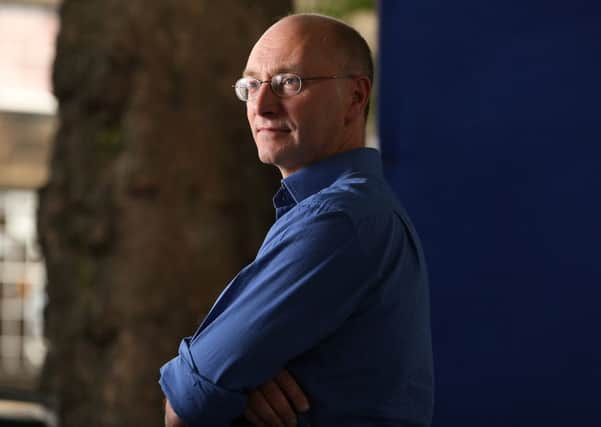Book review: Al-Britannia, My Country - A Journey Through Muslim Britain, By James Fergusson


The book’s central conceit is both strong and brave. Fergusson decided to spend a year visiting the supposed “no go zones” where Islam is the majority practised religion in Britain. It takes him to Dewsbury and Luton, Oldham and Leicester, Acton and Glasgow. It opens in striking style, with the bileful “British First” group marching down the streets, with their Doc Martens and St George flags. It is an insidious and ludicrous response to demographic facts. As Fergusson writes, the number of Muslims in Britain has doubled between 2001 and the present; the most popular name for new-born boys is now Mohammad, and one in twelve British schoolchildren is now from a Muslim background. With admirable openness he speaks to both these new communities and the people opposed to them, to those who are pro-multiculturalism and those (on both sides) who grind their teeth about a “failure to integrate”. His final chapter is an account of his own observation of the fast during Ramadan; as with other parts of the book he finds a genuine sense of fellowship and courtesy from his hitherto unknown Muslim neighbours. But it is not entirely unproblematic.
Fergusson confronts square on the problem of radicalisation: 850 Britons have travelled to Syria to join the phony caliphate in Syria. He discovers that the motivating factor is not theology. I would reckon I have read more of Avicenna, Averroes, al-Ghazali and even Sayyid Qutb, founder of the Muslim Brotherhood, than any of those who were jetting off for jihad. There is almost a classically Marxist interpretation of what radicalises, the prime factors being poverty, lack of opportunity, a dalliance with drugs and crime, and the mental illnesses which so frequently accompany these. As one of Fergusson’s interviewees, Alyas Karmani, puts it: “It’s not about ideals… the kid who was not very good-looking now looks good holding a gun… The ISIS gun is as much a penis extension as the stockbroker with his Ferrari.” Fergusson’s explorations of matters as diverse as rap and cage-fighting seem to confirm that it is not the five pillars of faith but testosterone which is the problem here.
Advertisement
Hide AdIt is also the problem with one area which Fergusson, who usually and honestly seems to find the best in his interviewees, clearly finds difficult: even very “liberal” Muslims seem to have a problem with homosexuality. It is, in a way, part of the “1950s morality bubble”. At the same time, that bubble had its virtues, as Fergusson shows. Things like courtesy, being hard-working, and regular attendance at worship were all features of the Islamic immigrant community. Indeed, they were the very “British” values which the same community was told to adopt, or else, by Theresa May.
The best parts of the book are how government policy towards the “Muslim problem” has in fact exacerbated it. The chapter “The Trouble with Prevent” – the government’s hastily conceived anti-radicalisation policy – is excellent. It shows how shabbily it was prepared – teachers, doctors, social workers and others were told that becoming withdrawn and becoming outspoken were both indicators someone may have been radicalised – and how it was perceived to be a tool of internal surveillance. Heightened attention is required of the mosque, but not the Kirk, the synagogue, or the Samye Ling centre.
Despite being open about his choice of vote in the independence referendum – it was a No – Fergusson describes his experiences with Glasgow and Edinburgh Muslims as indicative of a more successful policy approach towards integration: or if not exactly policy, then a sense of tact and tactics. But as he notes, levels of immigration to Scotland are far less high than in Bradford or even High Wycombe (which emerges as an unlikely centre for the fostering of terrorists).
The book might have benefited from a tad more background. The specifics of Salafism and Sufism, Wahhabism and Deobandi, even Sunni and Shi’a are sketchy, but these are issues which run, and cut, deep. Some engagement with the ideas of, say, Tariq Ramadan or Mona Siddiqui (mentioned but once) would have been welcome. Sometimes I had a Christine Keeler moment. There are points where Fergusson is so even-handed, speaking to various individuals implicated in ugly ideologies, that when they plaintively complain they were misrepresented I thought “Well, he would say that, wouldn’t he”. Nobody will sit down with an interviewer and pronounce: “Yes, of course, we wish death on the infidel.”
That caveat aside, this is a fascinating book. It does not “give a voice” to Britain’s Muslims – to use that awful cliché – it allows them to speak for themselves.
*Al-Britannia, My Country: A Journey Through Muslim Britain, By James Fergusson, Bantam Press, £20